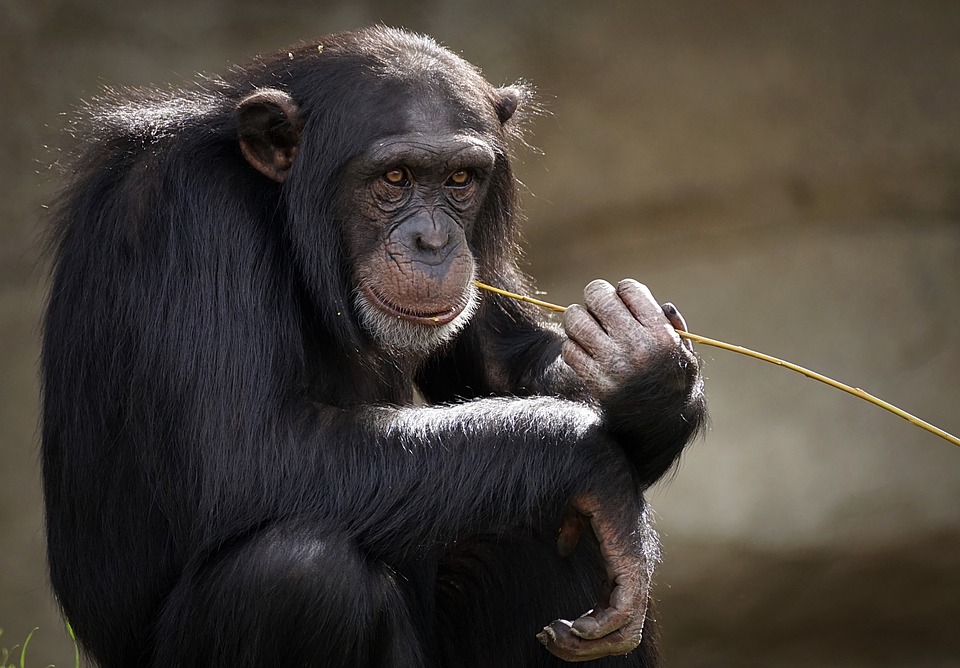Have you seen the Planet of the Apes? Were you amazed by the fact that monkeys really have some resemblance of human beings? Well, nobody ever thought this to be possible; in fact, people thought it’s just Science fiction. However, researchers and Scientists from the Kunming Institute of Zoology and the Chinese Academy of Sciences worked hand-in-hand to test whether or not human brain genes will have drastic effects to other creatures.

The researchers lodged human versions of Microcephalin (MCPH1) or the gene that scientists believe and claim to have a dramatic role in the progress of the human brain. They inserted the genes to eleven (11) Rhesus monkeys.
What they found was simple, yet mind-blowing. They unearthed that the brains of the monkeys—like those of human beings—took a slightly longer time to improve. Their brains performed better in terms of short-term memory assessments as well as the reaction time compared to wild monkeys.
Read: A Font That Could Improve Your Memory?
Result of the experiment
Out of the eleven (11) transgenic macaque monkeys that they were able to generate, six (6) passed. The five (5) survivors, however, went through a series of evaluations like memory tests and MRI scans.
Although the brains did not turn out to be bigger than a control group of macaques, they were able to prove that they’re better on some factors like tasks which required excellent short-term memory, and so on. Moreover, their brains were able to develop over a long span of time which is just like how human brains are.
Researchers and Scientists were happy with the fact that they were able to pull this stunt off. In fact, as per them, this was their first (1st) attempt to experiment on the genetic basis of the human brain using a transgenic monkey model.
Safely, we can conclude that this experiment aims to answer a question that has been circulating the minds of people for centuries: How did humans develop and progress to the unique brand of intelligence that we know now? How were we able to pull it off in ways that other primates were not?
The MCPH1 gene is the answer
Chinese researchers firmly believe that the reason behind this would lie on the added MCPH1 gene. Bing Su, Kunming Institute of Zoology geneticist, said that he’s testing other genes that were possibly involved in the brain evolution of the transgenic monkey.
One that he has his eye on is SRGAP2C, a DNA variant that arose about two million years ago, just when Australopithecus was ceding the African savannah to early humans. That gene has been dubbed the “humanity switch” and the “missing genetic link” for its likely role in the emergence of human intelligence. Su says he’s been adding it to monkeys, but that it’s too soon to say what the results are.
In addition to what Su said, he makes a mention of another human gene which is the FOXP2. This is believed to have the factor wherein humans were able to innovate with language and communication skills—which, of course, others were not able to do.
Read: Brain Teasers To Regularly Exercise The Brain – Keeping It Healthy!
Although Su believes this, he says that the monkeys won’t start speaking in tongues we’re familiar with, but will have a drastic change in the behavior when it’s by itself or when interacting with others.
What did other Scientists say about this experiment?
It’s fascinating to know that there are researchers about this topic but what actual good would it do to them and to us? Would it be like the Planet of the Apes movie where they tried conquering the world?
Jacqueline Glover, a Bioethicist in the University of Colorado, said that making these primates human-like and smarter have no probably positive cause.
To humanize them is to cause harm. Where would they live and what would they do? Do not create a being that can’t have a meaningful life in any context.”
In fact, a paper which bears the title The ethics of using transgenic non-human primates to study what makes us human, is a paper written by Glover. She, together with her team, were convinced that it’s too unethical to be adding human brain genes to apes.
So, adding human brain genes to a monkey would stand to be a substantial change in the way of how the monkey interacts and perceives its reality. They might have changed behavior because of them becoming “more” aware of what the situation is; they could have diseases like what us humans have; so technically, there are still some questions that need answers which Su overlooked.
Read: What Does Eating 2 Bananas a Day for a Month Give You?
However, some experts say that experimenting on them might not be the best idea because after the experiment, they won’t have anything to do with them.
Barbara J. King, How Animals Grieve author, and an emerita professor at the Anthropology at the College of William and Mary, said that called the experiment of Su an “ethical nightmare.”
More of the genetically altered monkeys — six — d**d than lived, so right off the bat we see that the procedure is often lethal. Regarding the five survivors, what kind of lives will they have going forward, altered as they are and confined to an experimental laboratory?”
Furthermore, King contributed by giving a cost-benefit analysis of the study because it does not take his favors out; meaning that it won’t have any positive impacts to how we are living and that we are just making a way on how these primates would suffer.
In the wild, macaques live in matrilines, centered around groups of related females with close social ties; they explore their world with intelligence and curiosity. What right do we have to subject these primates to grotesque procedures of this sort? The costs are terribly high and the benefits to humanity approach zero; there’s growing recognition that animal models simply don’t work well to study complex human processes.”
Read: Bacteria That Eats Plastic Found in Zambales
Su was teamed up with some people at the University of North Carolina U.S. researchers when he did this study. Although this is the case, the States still did not give an automatic passage to what Su and his team had to offer. Although U.S. researchers undergo these experiments, too, it’s still something that needs to be regulated.
What do you think about this experiment? Would this, in any way, help the current situation? Is this going to have a positive impact on how, we humans live?
